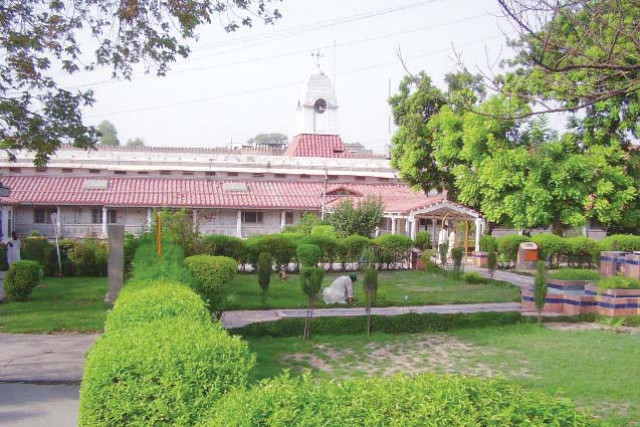Lady Reading Hospital: Healing hands ever so hectic
The hospital is synonymous with medical care for victims of terrorist attacks.

The hospital is synonymous with medical care for victims of terrorist attacks, given the lack of proper trauma care facilities in the region.
Over the past three years, the Accident and Emergency department has treated the victims of 110 bomb blasts. A list of admissions from 2007 to date reads like a depressing series of headlines. Peshawar Press Club - 23 injured. Yakka Ghund, Mohmand Agency - 98 injured. Meena Bazaar - 181 injured, 112 dead.
“We had to wrap piles of human flesh in sheets,” recalls Qari Amin Abdullah, a junior clinical technician, when asked about the attack on Meena Bazaar in 2009. “The basement was the worst, where over 100 bodies were placed. There were dead children as young as two months old. Everyone, including me, was crying.”
“This is the busiest emergency department in the world,” says its head, Dr Shiraz Afridi. “We treat 1,800 patients every 24 hours.” That number excludes 400 to 500 patients admitted daily in the paediatrics and gynaecology wings.
LRH now has a fine-tuned routine on how to manage patients when a bomb blast takes place. The police inform the hospital from the scene. LRH activates staff from all over the hospital and declares a state of emergency. Other departments – including the administration, cafeteria and the custodial staff – are roped in, as is the mosque’s imam. “He plays a huge role,” says Dr Afridi. “He helps console the attendants and also involves clerics of nearby mosques for the final washing of bodies and burials.”
“We have been dealing with this influx since the Soviet invasion of Afghanistan,” he told The Express Tribune. “The number has decreased because war wounded patients are now treated by the International Committee of the Red Cross, but we still get some Afghan patients from the nearby border areas.”
Those who cross the doors of LRH everyday also include the victims of personal disputes, who have been shot at by Kalashnikovs or stabbed.
Treating patients who may be militants is a particularly challenging issue for LRH. Intelligence agencies have been known to take injured patients away and order doctors not to treat them, a practice Dr Afridi terms “unethical and inhumane.”
Security concerns loom large for LRH’s staff. Even though the heavily fortified Balahisar Fort, which serves as the headquarters of the Frontier Corps, is next door, there are no metal detectors, security gates, CCTV cameras or guards at the entrance of LRH. There are also fears of secondary explosions at the hospital, given that similar incidents have occurred in Karachi and Lahore.
“The firing incident here last week is just one example,” says Dr Shakil Ahmed, who works in the wing. “A policeman was injured in what appeared to be an encounter and admitted around 5 or 6 AM. He succumbed to his injuries and his brother – also a policeman – was informed. He entered in civilian clothing, but was armed and started aerial firing. The police officers who came with the patient took shelter in the wards, how could we restrain the man? Anyone could have been injured.”
The mental pressure on LRH’s staff is undeniable. “There are no facilities, and the number of doctors has decreased,” Dr Ahmed said. “Our shifts are unmanageable.”
Dr Afridi told The Express Tribune that debriefing sessions are held after major attacks, but there is a need for training in post-traumatic stress. “The nurses scream. The staff collapses because of exhaustion.” After the Meena Bazaar attack, he had to convince nurses to bathe the bodies of female victims.
Published in The Express Tribune, March 2nd, 2011.













COMMENTS
Comments are moderated and generally will be posted if they are on-topic and not abusive.
For more information, please see our Comments FAQ